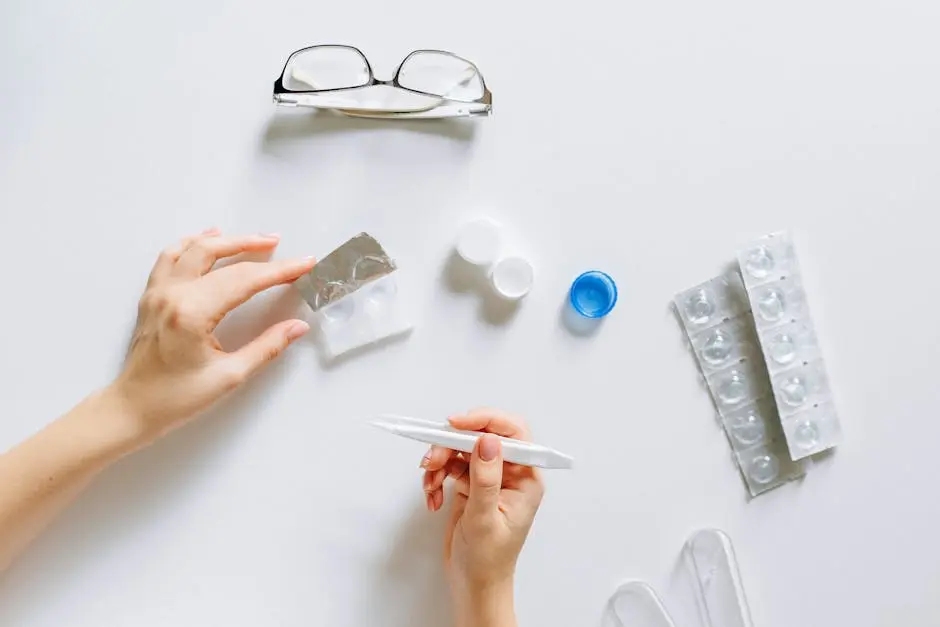
Aging can bring about changes in our vision and increase the risk of eye diseases. However, there are proactive steps you can take to maintain healthy eyes as you age. In this guide, we’ll explore practical tips and lifestyle changes to help keep your eyes in top shape.
Understand Common Age-Related Eye Diseases
Learn about conditions such as cataracts, glaucoma, and macular degeneration. Understanding these diseases can help you recognize early symptoms and seek timely treatment.
Did you know that conditions like glaucoma can lead to vision loss if left untreated? Early detection through regular screenings and knowledge about risk factors can significantly impact outcomes.
Cataracts are incredibly common among older adults. They cloud the lens of the eye, leading to a decrease in vision. Fortunately, cataract surgery is a safe, effective procedure that can restore clear eyesight.
Macular degeneration affects central vision, making it difficult to read or recognize faces. While age-related, knowing the early signs can help manage its progression with the guidance of an eye specialist.
Schedule Regular Eye Examinations
Regular eye exams are essential in detecting problems early. Aim to visit your eye doctor once a year to monitor eye health and catch any issues before they worsen.
Seeing your optometrist regularly can help track changes in your vision because most eye diseases are asymptomatic in the early stages. This preventive measure can also facilitate early intervention, potentially saving your vision.
During an eye exam, professionals can detect early signs of eye disease. Tests like tonometry (for glaucoma) and dilation (for retinal issues) are crucial components of a thorough examination.
Eat a Nutrient-Rich Diet for Your Eyes
Incorporate foods high in vitamins A, C, and E, as well as zinc and omega-3 fatty acids. These nutrients are known to support eye health and reduce the risk of eye disease.
Foods such as spinach, kale, and carrots should be staples in your diet as they contain lutein and zeaxanthin, key antioxidants that can reduce the risk of chronic eye diseases.
Omega-3 fatty acids found in fish like salmon and tuna can benefit your eyes by helping tackle dry eye syndrome, a common condition in older adults.
Zinc helps bring vitamin A from the liver to the retina, producing melanin which protects the eye. Oysters are a rich source of zinc, but you can also obtain it from beef, lentils, and pumpkin seeds.
Protect Your Eyes from Harmful UV Rays
Wearing sunglasses that block 100% of UVA and UVB rays can prevent damage that might lead to cataracts and other eye issues over time.
It’s also important to remember that protective sunglasses aren’t just for sunny days. UV rays can be just as harmful on cloudy days or when near reflective surfaces like water and snow.
Consider adding a wide-brimmed hat to your sun protection routine. This can further shield your eyes from direct sunlight and enhance the effectiveness of your UV-blocking sunglasses.
Manage Chronic Health Conditions
Conditions like diabetes and hypertension can affect eye health. Maintain control over these conditions with proper medical care and lifestyle adjustments.
Managing blood sugar levels is crucial for diabetics to prevent diabetic retinopathy. This condition can damage blood vessels in the retina and potentially lead to vision loss.
High blood pressure can cause hypertensive retinopathy. Regular monitoring and medications can manage blood pressure, subsequently stabilizing eye health and reducing the risk of this condition.
Avoid Smoking and Limit Alcohol Intake
Smoking and excessive alcohol consumption can contribute to eye diseases. Stopping smoking and moderating alcohol use can greatly benefit your eye health.
Smoking can increase the risk of developing age-related macular degeneration, leading to permanent vision loss. Quitting smoking can slow these degenerative processes and significantly improve overall eye health.
Excessive alcohol consumption is linked to a higher risk of cataract formation. Limiting alcohol can not only preserve liver health but also keep your eyes clear and strong.
For those looking to quit smoking, there are numerous resources available, such as support groups and smoking cessation programs, that can provide motivation and assistance.
Preserve Your Vision: The Key to Healthy Eyes as You Age
Maintaining eye health as we age is crucial for preserving our quality of life. By incorporating these practices into your routine, you can reduce the risk of eye diseases and enjoy clear vision for years to come.

